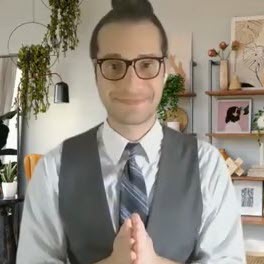Alex S. Glassmann – an interview
 1) Who are you? Where do you come from? What is your background?
1) Who are you? Where do you come from? What is your background?
I’m Alex Glassmann, an attorney-mediator and family coach based out of Minnesota. I began my legal career as a judicial clerk to the Honorable Judge Bruce Peterson, and I’ve spent the better part of the last decade specializing in divorce and family mediation—first at Erickson Mediation Institute, and now through my own practice. My background blends legal training, developmental psychology, and deep experience guiding families through major transitions. I’ve also served as an adjunct professor at the University of Minnesota Law School, where I taught mediation and helped shape the next generation of conflict resolution professionals.
At my core, I’m driven by a commitment to helping people find their footing during what is often the most disorienting chapter of their lives—and to do so in a way that’s principled, efficient, and child-centered.
2) What do your current professional practice and activities look like?
I maintain a full-time private practice focused on high net worth divorce mediation, child-centered parenting plans, and strategic family coaching. Many of my clients come to me after spending hundreds of thousands on litigation that failed to produce resolution. My approach—grounded in flat-fee, upfront pricing—offers a principled alternative to the exploitative tendencies of the billable hour. I routinely work with clients navigating complex asset portfolios, including speculative startup interests, private board roles, and deferred compensation schemes.
Equally central to my work is a deep commitment to children. I provide comprehensive, research-informed parenting plans, tailored to families with infants, teens, or even adult children and grandchildren. I also offer one-on-one coaching, post-divorce mediation, and communication strategy for clients in long-term relationships, blended families, or ambivalent pre-divorce scenarios.
3) How did you first learn about mediation?
I was introduced to mediation during law school, but it wasn’t until I clerked for Judge Peterson—who has a deep interest in therapeutic jurisprudence and family systems—that I saw its full potential. It became clear to me that many of the most painful and intractable family disputes weren’t legal problems at all. They were human problems—problems of identity, transition, parenting, grief. Mediation, done well, could meet those problems head-on. That realization changed the course of my career.
4) What do you hope to accomplish as a Board Member of APFM?
I want to help APFM remain the intellectual and ethical center of gravity in our field. That means supporting high standards of training and practice, yes—and also making space for rigorous debate, innovation, and critical self-reflection. I’m especially interested in expanding how we think about post-divorce co-parenting work, the rise of discernment-style pre-divorce engagements, and the role of strategic coaching within the family mediation landscape.
We should also be leading the conversation around access and value—challenging exploitative pricing structures and modeling transparent, results-oriented alternatives that meet clients where they are.
5) Where do you see the field of Family Mediation going?
I see the field becoming more multimodal and less tethered to the courtroom’s shadow. That’s a good thing. Clients increasingly expect mediators to offer both structure and insight—to integrate coaching, research, and systems thinking into our work. Mediation isn’t just about neutrality anymore. It’s about discernment, perspective, and equipping people to make principled choices about their future.
We’ll also need to grapple with new questions: How do we responsibly incorporate AI tools into process design? How do we define competence in a world where parenting arrangements intersect with neurodivergence, trauma science, and social identity? These aren’t future problems—they’re already here.
6) What do you like to do when you are not mediating?
When I’m not working, I’m usually at the playground chasing my two young daughters, losing tickle fights, or getting pinned in a high-stakes wrestling match. I also sneak in time for video games when I can, and I have a longstanding love of philosophy, history, and political theory. One of my favorite guilty pleasures is watching lectures and archival debates on YouTube—especially from thinkers who challenge prevailing orthodoxies in law, psychology, and public life.
